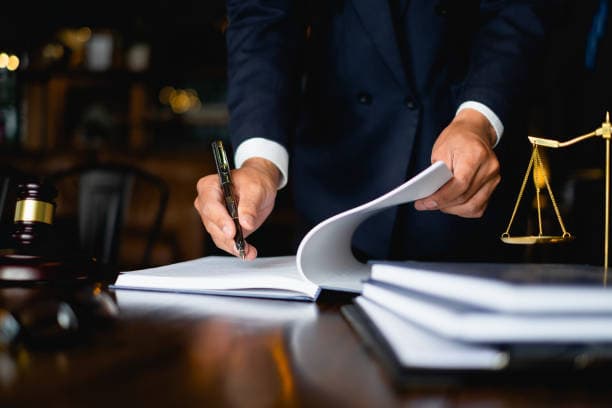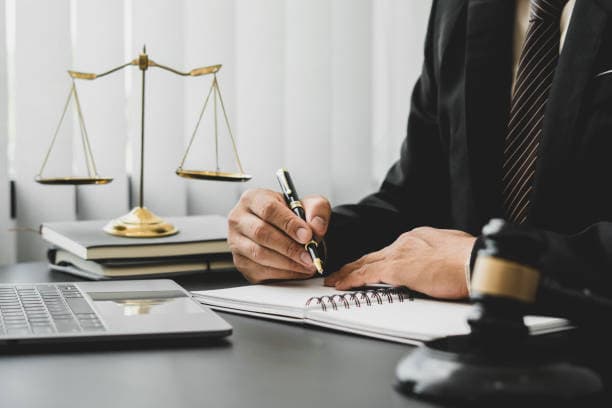Meeting with an attorney for the first time is one of the most important stages towards resolving your legal situation. A thorough preparation is required to maximise this time. These procedures will assist you in getting ready for the meeting.
Step 1: Compile all of the paperwork
Court notices, contracts, official notices, and correspondence are among the case’s supporting documentation. Personal documents include your passport, proof of marriage or divorce, and other legal documents proving your status.
How to arrange your files
- Make folders for several categories so you can easily find the documents you require for your appointment.
- Sort documents by date to easily retrace the chronology of events.
- Write a succinct summary that emphasises each document’s significance to your argument. This can speed up your lawyer’s job and help you focus on crucial topics.
Step 2: Formulate the objectives of the meeting
The second stage in preparing for your meeting with an attorney is to thoroughly define your goals and expectations. This will assist in making your discussion with your attorney as fruitful and goal-oriented as feasible.
Make sure you know exactly what you want
- Recognising the legal aspects of your issue
It is important to get a knowledgeable advice about the legal aspects of your case. The lawyer can identify nuances that you have not paid attention to and suggest the best ways to solve.
- Assessing the prospects and possible risks of the case
Having a realistic assessment of the opportunities and potential hazards can help you determine how likely you are to succeed. An analysis of potential results based on existing legal procedures and the lawyer’s own experience should be provided.
- Recommendations on how to proceed
The initial meeting’s most important outcome is obtaining a clear plan of action, including recommendations for obtaining more proof or the necessity of consulting with other experts.
Ask questions
By preparing your questions ahead of time, you can make sure you don’t overlook any important details and that you cover every aspect of your case that interests you. Let’s examine a few instances of potentially useful questions:
- What are my rights and obligations in this situation?
- What are the legal risks and how can I minimize them?
- What strategies for resolving my case would you recommend?
- What is the approximate timeline for resolving my matter?
- What additional documents or information may be required?
- How much would it cost me to pursue my case?
Step 3: Find out more about the lawyer through research
The third phase in getting ready for a meeting with a lawyer is to research the lawyer thoroughly. This entails reviewing the lawyer’s past client references, learning about their practice areas, and determining whether or not they have experience with cases similar to yours. Examining reviews can assist you in determining the lawyer’s standing, professionalism, and standard of client care; details regarding experience and specialisation can reveal how well-versed the lawyer is in the details unique to your case. You will be better equipped to arrange the meeting, select the expert who best suits your needs, and set realistic expectations by conducting this study.
Step 4: Prepare for fee negotiation
The fourth step in preparing for your first meeting with an attorney is to make sure you are ready for a charge and fee discussion. It is crucial to comprehend the pricing schedule in its entirety, which can range from an hourly fee to a fixed fee for the entire scope of work, as well as to find out all possible additional costs, such as forensic expert fees, postage and courier services, and how often services will be billed. This strategy will assist in preventing future miscommunications and unforeseen financial commitments, guaranteeing openness and predictability in your financial relationship with your attorney—a crucial component of productive collaboration and attaining the intended legal outcomes.
Step 5: Plan what you will say
It’s crucial to produce a case summary ahead of time for your initial contact with an attorney, as part of step five of the preparation process. Firstly, lay out all the important details in a chronological manner so that the lawyer can see the flow of events. This will facilitate comprehension of the larger picture and enable the lawyer to assess your case more skillfully.
Focus on highlighting pertinent information and circumstances that are essential to the argument. Specifics like vital dates, testimony, and contract clauses can all have a big impact on how your defence is formulated.
Additionally, be ready to answer any questions your attorney may have in order to clarify any points throughout a thorough conversation. A meeting that is well-prepared will be as focused on reaching your goals and as fruitful as possible.

Step 6: Write down all your expectations and concerns
Getting ready for your first meeting with a lawyer is step six. It’s critical to concentrate on expressing your expectations and concerns about your upcoming litigation in a clear and concise manner. It’s critical to identify any worries or uncertainties you may have regarding your case, as well as to consider precisely what you hope to achieve with legal assistance, in advance. Not only will writing these points help you organise your ideas, but it will also make sure that no crucial detail is overlooked when the topic is being discussed.
By taking this technique, the lawyer will be able to comprehend your top priorities and modify your defence or representation plan accordingly. Furthermore, by recognising your worries, the lawyer might provide precise answers or explanations that can lessen your stress.
Making a list of your expectations and worries can also help you and your lawyer have a more honest and reliable conversation, which is essential for providing quality legal representation. This considerably raises the possibility of a successful case outcome by guaranteeing that all of your concerns are taken care of and that any queries or worries are handled right away.
Step 7: Be prepared for an open dialog
Finally, it is essential to communicate openly and honestly in order to arrange a good initial meeting with a lawyer. Nothing, not even little or unfavourable facts, should be revealed. Being completely honest will enable the attorney to create the best defence plan possible, as even seemingly insignificant details can have a big influence on how the case plays out. Building a solid rapport of trust with your legal counsel by active engagement in the process, including communicating your expectations and worries, is essential to a fruitful legal collaboration. To increase the likelihood of success, go into the first meeting with the readiness to be fully transparent and honest. This is not just an opportunity to seek professional assistance, but also to set the groundwork for an efficient resolution of your issue.
